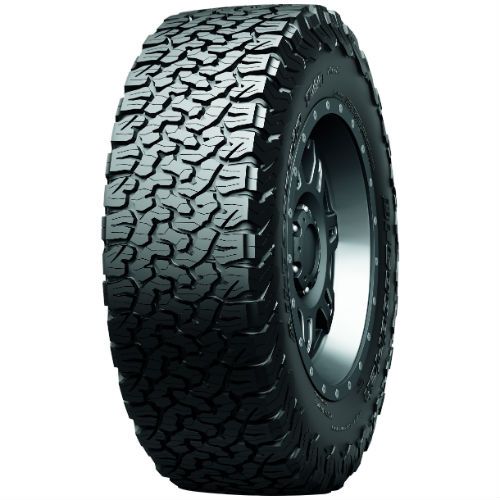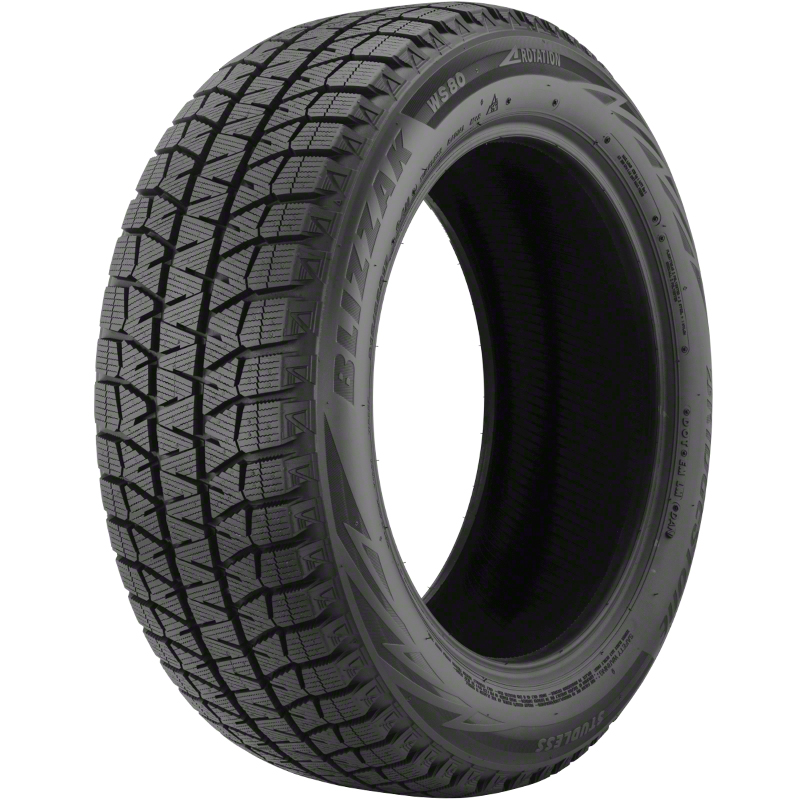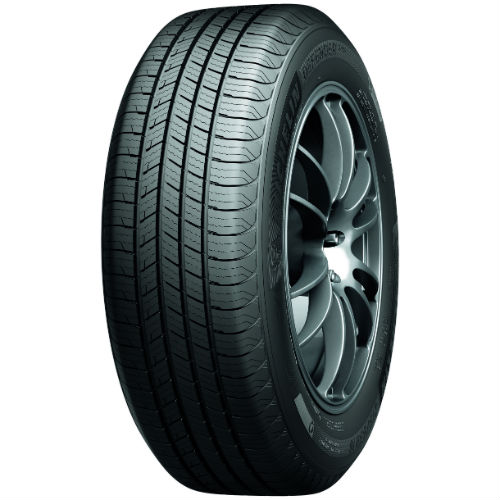All Season Vs All Terrain Tires - What's The Difference and Which Do You Need?
All Season Vs All Terrain Tires - What's The Difference and Which Do You Need?
As car owners, one of the most critical decisions we need to make is regarding our car's tires. The question often arises - should we opt for standard all-season tires or take the leap to all-terrain tires? Notably, this decision can have significant implications, particularly for light truck drivers. Factors such as fuel economy, road conditions, and the vehicle's usage come into play. So, what's the best tire for your situation? This blog aims to deliver a comprehensive comparison between all-season and all-terrain tires, providing you with the knowledge required to make an informed decision as to which tire is best for your vehicle, driving style, and weather conditions.
What are All-Season Tires?
All-season tires are designed to perform adequately in a variety of conditions, from dry pavement to wet roads and light winter driving. These tires are generally built with a balanced combination of features such as moderate tread depths and rubber compounds that are designed to provide a longer tread life. They are known for their versatility and are suitable for most vehicles and conditions.
You may require all-season tires if you live in an area that experiences mild weather conditions throughout the year. If the climate where you live does not frequently see severe winters or extreme summers, all-season tires could be a good choice.
Additionally, if you drive a passenger car, minivan, or crossover, all-season tires can be the ideal pick as they are designed to deliver a smooth ride and decent performance in most driving conditions. Always remember to consult your vehicle's owner's manual or a tire professional to ensure the best fit for your vehicle and driving needs.
What Are Some Of The Best All-Season Tires?
Some of the best all-season tires in the market include:
- Continental TrueContact Tour
- Pirelli P4 Four Seasons Plus
- Bridgestone Ecopia EP422 Plus
These tires offer a good balance of performance, comfort, and longevity.
What are All-Terrain Tires?
All-terrain tires are engineered to provide superior traction on off-road surfaces, such as gravel, dirt, sand, mud, and snow, while still maintaining adequate performance on paved roads. These tires typically have more aggressive tread patterns and tougher rubber compounds to withstand harsh conditions. They may also feature reinforced sidewalls for increased resistance against punctures and damages that can occur during off-road driving.
If you frequently travel on unpaved roads or through rugged terrains, all-terrain tires could be an appropriate choice. They can handle the challenges of off-road trails while also providing acceptable on-road comfort and performance. In terms of weather conditions, they can handle a wide range of environments, from dry and rocky to muddy and snowy.
Regarding vehicle type, all-terrain tires are predominantly used on SUVs, trucks, and other four-wheel-drive vehicles. They are an excellent choice if your driving is split between on-road and off-road conditions. Just like with all-season tires, it's crucial to consult your vehicle's owner’s manual or a tire professional to ensure all-terrain tires are a suitable choice for your vehicle and driving habits.
What Are Some Of The Best All-Terrain Tires?
Some of the best all-terrain tires in the market include:
- BF Goodrich All-Terrain T/A KO2
- Goodyear Wrangler All-Terrain Adventure With Kevlar
These tires offer exceptional off-road capabilities and also provide decent on-road performance.
Key Differences between All-Season and All-Terrain Tires
Now that we've explored the individual characteristics of all-season and all-terrain tires, it's time to juxtapose these two options. Consideration of their key differences can illuminate the strengths and weaknesses of each tire type, and highlight their optimal use cases. These disparities ultimately will guide you to the right tire that can withstand your specific driving conditions and complement your vehicle's performance. Let's delve into the distinguishing attributes of all-season versus all-terrain tires.
Tread Pattern
As mentioned earlier, the tread pattern is one of the most significant differences between all-season and all-terrain tires. All-season tires have smaller tread blocks and shallower grooves, which are suitable for providing traction on both wet and dry roads. Meanwhile, all-terrain tires have larger tread blocks and deeper grooves that can handle rougher terrains.
Traction
Due to their different tread patterns, all-season and all-terrain tires offer varying levels of traction. All-season tires perform well on paved roads, providing excellent grip in both wet and dry conditions. However, they may struggle on rougher surfaces due to their smaller tread blocks and harder rubber compounds. On the other hand, all-terrain tires excel in off-road conditions, providing superior traction on loose surfaces like dirt and mud.
Durability
Another key difference between all-season and all-terrain tires is their durability. All-season tires are designed to provide a longer lifespan, as they can handle different weather conditions and road surfaces without excessive wear. In comparison, all-terrain tires may wear out faster due to their more rugged tread pattern and softer rubber compound.
Which One Do You Need?
The type of tire you need largely depends on your driving habits and the terrain you frequently encounter. If you mainly drive on paved roads and occasionally encounter light snow, then all-season tires are likely the better choice for you. On the other hand, if you enjoy off-roading or live in an area with harsh weather conditions and rough roads, all-terrain tires would be a more suitable option.
The key differences between all-season and all-terrain tires lie in their tread pattern, traction, and durability. It's essential to consider your driving needs and choose the type of tire that best suits them. Consult with a tire professional if you're still unsure, as they can provide expert recommendations based on your specific vehicle and driving habits. With the right tires, you can ensure a safe and enjoyable driving experience in any weather or terrain. So, make sure to choose wisely!
Questions To Ask When Purchasing New Tires
- Will the new tires provide sufficient traction in deep snow?
- As a vehicle owner, what considerations should I keep in mind when choosing between an aggressive tread design and a more regular tread?
- How will the tires impact ride comfort, especially during long-distance travel?
- Are these tires suitable for driving in mild winter conditions?
- Are these tires capable of towing heavy loads without compromising safety or performance?
- What features of these tires contribute to providing maximum traction during slippery conditions?
- Do these tires meet the required standards for severe snow service?
- Can you provide any specific tire recommendations for a vehicle owner like me who requires both winter traction and ride comfort?
- How do these tires influence fuel efficiency, particularly under everyday driving conditions?
- How is this tire's off-road performance, and how does this compare to their performance on paved roads?
- Should I consider dedicated winter tires for severe snow conditions, or would these tires suffice?
- Are these tires classified as touring tires, and if so, how does this classification affect their performance and comfort during long-distance travel?
- Does having more rolling resistance with these tires impact fuel consumption and ride comfort?
- Do the tire manufacturers provide any warranties on their tires?
- Do I need a dedicated summer tire for my vehicle?
When Do I Need Winter Tires?
While all-season tires can handle light snow, they are not suitable for severe winter conditions. In these cases, it's recommended to switch to winter tires. Winter tires have a special tread pattern and softer rubber compounds that allow them to maintain flexibility in freezing temperatures. This results in better traction and handling on ice and snow-covered roads.
It's essential to know when it's time to switch to winter tires and when it's safe to switch back to all-season or all-terrain tires. Typically, winter tires should be used when temperatures consistently drop below 45 degrees Fahrenheit (7 degrees Celsius) and can be switched back once the temperature rises above this threshold.
Best Winter Tires: Our Top Picks
Michelin X-Ice Xi3
This tire offers excellent traction on both ice and snow, along with a quiet and comfortable ride.
Bridgestone Blizzak WS80
With advanced technology for enhanced grip and braking, this tire is perfect for severe winter conditions.
Goodyear Ultra Grip Ice WRT
Designed for sedans, coupes, and minivans, this tire delivers exceptional performance on ice and snow.
Pirelli Winter Sottozero 3
This high-performance winter tire offers excellent handling and traction in both wet and snowy conditions.
Continental WinterContact SI
Designed for passenger cars, this tire boasts impressive braking and traction capabilities on all winter road surfaces.
When it comes to staying safe on the road in winter, investing in good quality winter tires is crucial. Consider these top picks when looking for the best winter tires for your vehicle.
What About All Weather Tires?
Another option to consider is all-weather tires, which are designed to provide performance similar to both all-season and winter tires. They have more tread depth and a special rubber compound that allows them to handle various weather conditions, including light snow. While they may seem like the perfect balance between all-season and winter tires, they may not perform as well in extreme weather conditions as specialized tires.
The difference between all-season and all-terrain tires lies in their tread pattern, traction, and durability. Depending on your driving needs and the terrain you frequently encounter, one type of tire may be more suitable for you than the other. It's also important to know when it's time to switch to winter tires and when it's safe to switch back to all-season or all-terrain tires. Consider consulting with a tire professional for expert recommendations based on your specific vehicle and driving habits. With the right tires, you can ensure a safe and comfortable driving experience in any weather or terrain.
Best All Weather Tires: Our Top Picks
Nokian WR G4
This tire offers outstanding performance in all weather conditions, including snow and ice.
Goodyear Assurance WeatherReady
With a tread design that provides both wet and dry traction, this tire is perfect for all seasons.
Michelin CrossClimate+
With impressive braking capabilities on both dry and wet roads, this tire also performs well in light snow.
Toyo Celsius
Designed for year-round use, this tire offers reliable traction and handling in a variety of weather conditions.
Falken Wildpeak A/T3WA
This all-terrain tire is perfect for drivers who need both on-road comfort and off-road performance in all seasons.
Consider these top all-weather tire picks when looking for a versatile, year-round option for your vehicle. Choosing the right tires is crucial for overall performance and safety on the road, so make sure to ask the necessary questions and do proper research before making a decision. With the right tires, you can have peace of mind knowing that your vehicle is equipped to handle any weather or terrain condition.
Pay Later Tires FAQ
What are the key features of summer tires compared to standard all-season tires?
Summer tires are designed for optimal performance in warm weather. The tread compound of summer tires is designed to remain flexible during hot temperatures, providing excellent traction and handling. On the other hand, standard all-season tires are designed to perform reasonably well in a variety of weather conditions, including mild winter weather.
Is it necessary to switch to dedicated winter tires during the snowy season?
Yes, it is highly recommended to switch to dedicated winter tires in snowy or icy conditions. While all-season tires can handle mild winter conditions, they cannot compete with the traction and control provided by winter tires in severe winter weather. Winter tires have a special tread pattern and softer rubber compound that maintains flexibility in freezing temperatures, ensuring superior traction and handling.
Can studded tires be a good alternative to standard winter tires?
Studded tires can provide extra traction on icy or snowy roads. However, they can also cause damage to the road surface and are therefore prohibited or restricted in some regions. It's always best to check local laws before choosing studded tires. Also, remember that modern non-studded winter tires offer excellent traction on winter roads.
How to choose the best tires for my vehicle?
The best tires for your vehicle will depend on various factors, including the type of vehicle you drive, the climate you live in, and your driving habits. It's important to consider these factors when selecting your tires. Consulting with a tire professional, doing proper research, and checking reviews and ratings can also help you find the best tires for your vehicle.
When should I replace my standard all-season tires with summer tires?
If you live in a region where the temperature consistently stays above 45 degrees Fahrenheit (7 degrees Celsius) during the warmest months and you often drive on windy and wet roads, it might be beneficial to switch to summer tires. These tires are designed to provide excellent grip and handling in both dry and wet warm-weather conditions. Remember to switch back to all-season or winter tires when the temperature starts to drop.
Create a Free Account
Search thousands of tires and wheels available on payment plans with free delivery!


